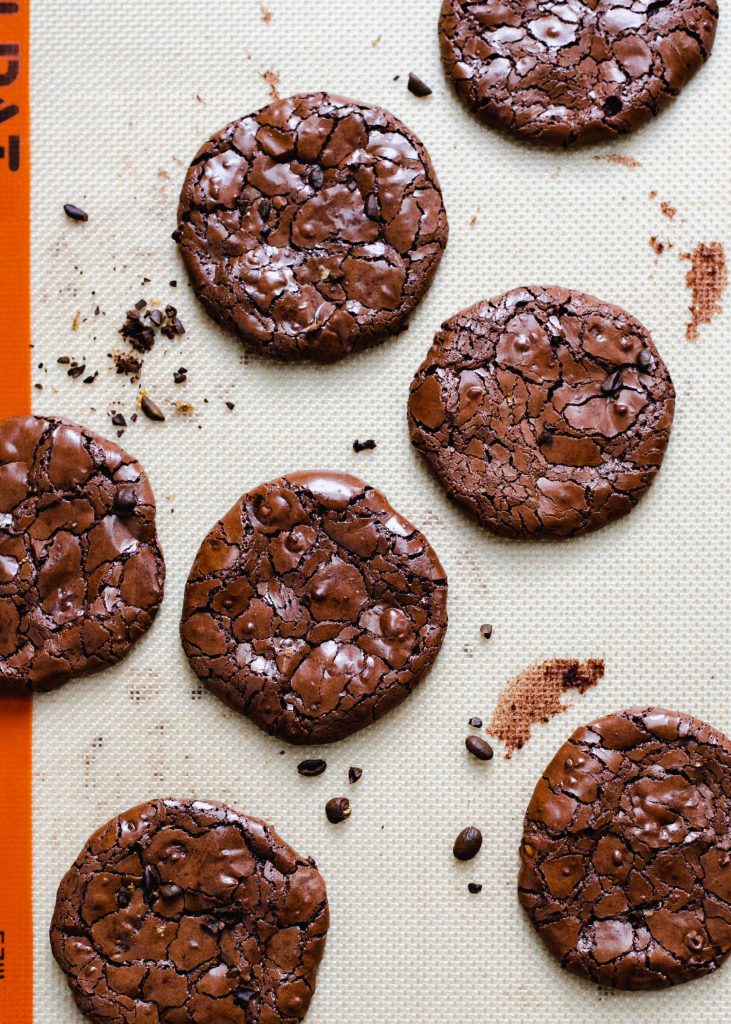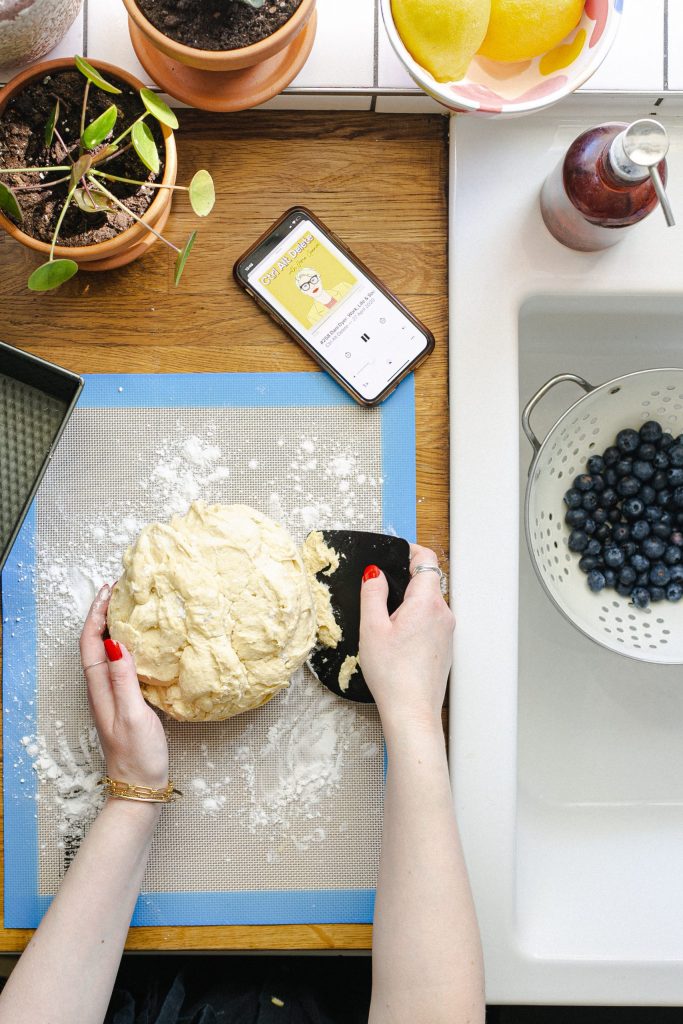 Are you wondering what all the fuss is about when it comes to FODMAPs or fermented foods? Do you know your prebiotics from your probiotics? I chat to Dr Megan Rossi who’s empowering the public with the latest scientific research (in a cool, fascinating kind of way), so that we can make more informed decisions about our health and what we eat.
Are you wondering what all the fuss is about when it comes to FODMAPs or fermented foods? Do you know your prebiotics from your probiotics? I chat to Dr Megan Rossi who’s empowering the public with the latest scientific research (in a cool, fascinating kind of way), so that we can make more informed decisions about our health and what we eat.
Dr Megan Rossi is a Registered Dietitian with a PhD in the area of Gut Health. An all round wonder-woman, originally from Australia, she works as a Research Associate at King’s College London, investigating nutrition-based therapies that include the low FODMAP diet for the treatment of IBS. Megan also works as a Consultant Dietitian across industry and media AND she’s just opened up a Gut Health clinic on Harley street in London too.
You are doing a brilliant job to try and make science accessible to all. Why do you think it’s important to bridge that gap and try and bring more scientific studies into the public eye?
Thanks Emma! It’s only early days for my social media drive but people are really embracing the science which is exciting. I think inherently people want to understand how things work particularly when it comes to food and their body.
As a dietitian I found it incredibly frustrating that despite the ground-breaking research being done, it’s the unfounded and potentially dangerous nutrition messages that influence the public’s dietary choices. And this is why I started my social media journey, I believe if I can connect the general public with research, people will be able to make more informed decisions about their health and what they eat.
Why is gut health so important? Is there anything people can do to help ensure they have a healthy gut?
Get ready for my ramble – I’m clearly very passionate about this question! Anyone who has suffered symptoms of gut distress such as diarrhoea, constipation and stomach pain, knows just how debilitating it can be. In fact, one study highlighted that people with irritable bowel syndrome (IBS) would give up 25 per cent of their remaining life to get relief from their gut symptoms!
But it doesn’t stop there, the importance of gut health extends beyond the gastrointestinal tract, impacting other vital organs like your brain, heart, kidney and liver. How it does this is through the trillion of bacteria that live in our gut (which scientist call our gut microbiota).
There are a number of things you can do to support the health gut. One of the key things is to enjoy a diverse diet rich in fibre. This includes plenty of fruit, vegetables, wholegrains, legumes, nuts and seeds- variety is key!
If you are starting from a low fibre diet gradually increase fibre over time and ensure you drink plenty of water- these two tips will help minimise any unwanted gut symptoms that can result when increasing your fibre intake.
What made you want to get involved in gut health as part of your career? Why do you enjoy science and food research?
My interest in gut health fondly enough came from a “gut” feeling 😉 I was working as a clinical dietitian with patients who had kidney disease and their ongoing struggles with gut symptoms led me to question more about the role of gut health beyond the gastrointestinal tract . So I embarked on my PhD in gut health and I’ve never looked back! (here’s a 3 minute, public friendly presentation of the findings from my PhD https://vimeo.com/107775313 ).
In terms of science and food my mum loves to joke that my two first words were “why?” and “food”…so I guess my inquisitive mind set and passion for food were instilled in me from an early age. This is why I love my job- I get paid to ask the “why?” in relation to all things food.
There’s a lot of talk about fibre, prebiotics and probiotics at the moment. Please could you give a quick overview of each and explain why they’re important/what they mean for gut health/IBS/FODMAP diet?
Simply speaking PRE-biotics are the food for beneficial bacteria and PRO-biotics are the live beneficial bacteria. When combined together they’re known as SYN-biotics because of their synergistic effect. (prebiotics + probiotics= synbiotics)
Both prebiotics and probiotics can be found naturally in a range of foods:
Prebiotics:
Artichokes | onion | garlic | asparagus | leeks
Probiotics:
Some yoghurts | Kefir | Kombucha | Kimchi | Natto
(must say active (fermented (fermente (fermented (fermented
live cultures) milk drink) sweet tea) cabbage) bean)
It’s also worth noting that prebiotics are a type of dietary fibre, but not all fibres are prebiotics- confusing I know!
The theory behind prebiotics and probiotics is that if we consume more of them we can increase the proportion of the good bugs in our gut that are associated with health. In saying that it is important to remember that this research area is in its infancy- there is still so much that we don’t understand!
In terms of IBS, many naturally occurring prebiotics can aggravate gut symptoms in the short term. This is the concept behind the low FODMAP diet which effectively restricts prebiotics and other fermentable carbohydrates in the diet.
There is a growing interesting in the role of probiotics in IBS. In fact findings from 35 clinical trials were pooled together and concluded that if you have IBS probiotics will reduce your risk of symptoms by 21%. But it’s important to be aware that not all probiotics are effective and different probiotics improve different symptoms- check out my social media post on the topic.
What are your thoughts on fermented foods and IBS/FODMAP diet?
I am all for experimenting with fermented foods that contain probiotics (remember not all fermented food contains live bacteria- many die off in the processing). Why am I so pro this? Simply because they contain good bugs, come at no extra cost and taste great. That being said there is limited research investigating the benefit of fermented foods. In addition some fermented foods are high in FODMAPs and therefore may not be well tolerated by everyone.
You currently work as a Research Associate at King’s College London, one of the leading organisations on the Low FDOMAP Diet in the UK. Are you allowed to say about any exciting research you’re working on at the moment?
If you promise not to tell anyone…! I am working on a number of projects but the two most exciting involve looking at how different types of dietary fibre affect people with IBS (using super cool scanning machines we can look inside people’s guts and see how the bacteria ferment the fibre). The second project is investigating the role of food additives in gut health.
Why is it so important that people try and reintroduce foods containing FODMAPs back into their diet after completing the elimination phase of the Low FODMAP Diet? And is there a myth you’d like to bust about the Low FODMAP Diet?
It is so important that people realise FODMAPs are healthy for most people! After all many FODMAPs are prebiotics so they feed our good bacteria. Starving your gut bacteria of prebiotics in the long term is risky business.
One common misconception about the low FODMAP diet is that it’s gluten free- this is simple not the case. Although your intake of gluten often decreases on a low FODMAP diet secondary to restricting wheat, you don’t need to worry about having small amount of wheat/ gluten found in things like soy sauce (unlike people with coeliac disease). The reverse is also true, gluten free foods are not necessarily low FODMAP.
As a food blog we have to ask, what’s your favourite dish or ingredient?
Tricky! I love so many dishes… although I think runny poached eggs on traditional sourdough with smoked salmon and wilted greens will always have a special place in my heart.
Where can people find you on social?
@TheGutHealthDoctor across Instagram, Facebook and Twitter






